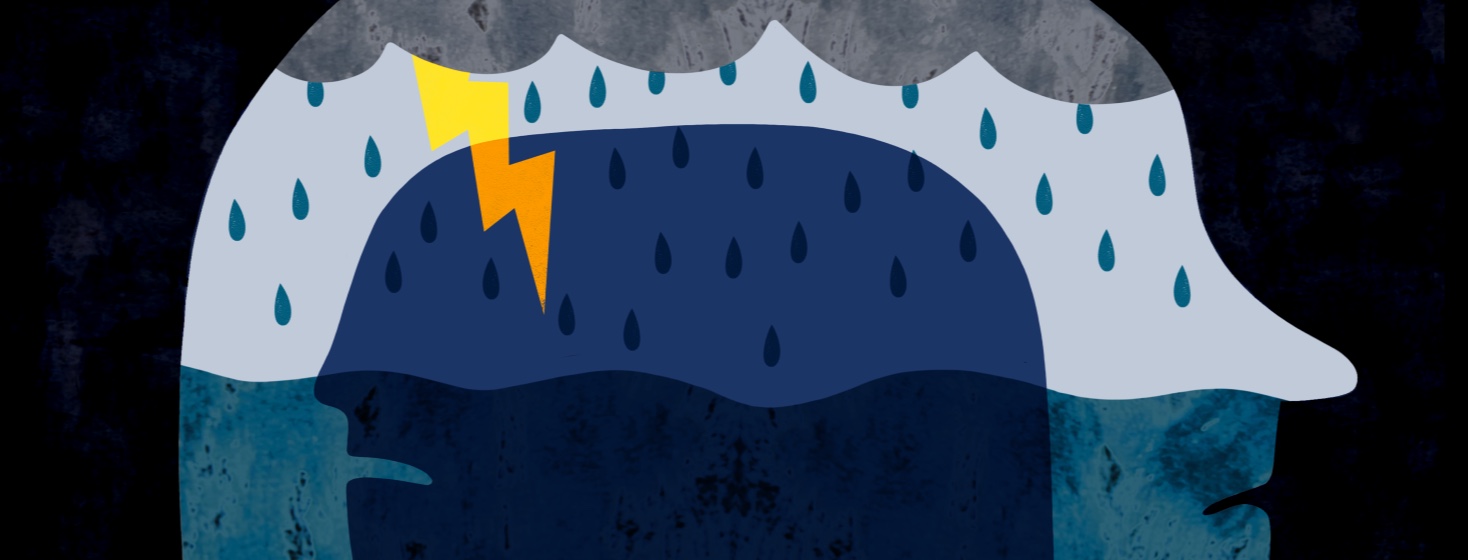Mood Changes in Alzheimer’s
Reviewed by: HU Medical Review Board | Last reviewed: May 2023 | Last updated: December 2025
Mood changes are one of the main symptoms of Alzheimer’s disease. These symptoms, like psychosis, social withdrawal, and aggression, can be among the hardest for caretakers to deal with.1-3
Understanding the potential mood changes that Alzheimer’s causes can help you notice changes in loved ones. Not everyone will experience the same symptoms. But many people with Alzheimer’s will experience some form of behavior or personality shifts.1,2
Personality changes
Someone with Alzheimer’s may experience changes in their personality over time. They could seem to get frustrated or more angry than usual as the disease progresses. Or they may act in unexpected ways, such as refusing to bathe or get dressed. Some people may become socially withdrawn. These symptoms usually start during the middle stage of Alzheimer’s. But they may happen any time.1,2
Personality changes are common with Alzheimer’s. These changes can be difficult for caregivers. Someone with Alzheimer’s may become more agitated, withdrawn, or confused than they once were. But they can still benefit from interaction in gentle ways, like listening to music or watching a favorite movie together.1
If agitation and aggression worsen, or the person is a danger to themselves or their caregiver, consult your doctor. They can help you think of options to keep both you and your loved one safe and cared for. Caregivers may want to use supportive care, like hospice, especially if the person with Alzheimer's is near the end of their life.1
Psychosis and delusions
People with Alzheimer’s may see, hear, feel, taste, or smell something that is not really there. They may believe something that is not true or be suspicious of something harmless. These types of mood changes are called psychosis and include things like delusions and hallucinations.3
Not all delusions or hallucinations are harmful or stressful to the person experiencing them. But you should answer honestly if they ask you questions about the situation. For example, if they ask if you see something that is not there, you may want to answer, “I know that you see something, but I cannot see it.”3
Other mood changes
There are several other mood changes that Alzheimer’s can cause. The exact type and severity of mood changes depends on each person. But common ones include:1,2
- Restlessness, particularly during evening hours
- Depression
- Anxiety
- Compulsive behavior (for example, shredding paper or wringing their hands)
When to see a doctor
If you notice mood changes in a loved one, Alzheimer’s may not be the cause. But if these symptoms show up with other Alzheimer’s symptoms, you may want to speak with a doctor and discuss potential paths forward. Alzheimer’s can be diagnosed even in its early stages. And early detection can help the person with Alzheimer’s get their affairs in order and set a care plan in place.1
Hallucinations should be discussed with a doctor. The doctor can help rule out other possible causes. They can also determine if drug or nondrug treatments would be helpful. There are drugs available to treat some symptoms of Alzheimer’s disease. But each drug also carries risks. Be sure to discuss the risks and benefits of different approaches with your doctor before making a decision.3
